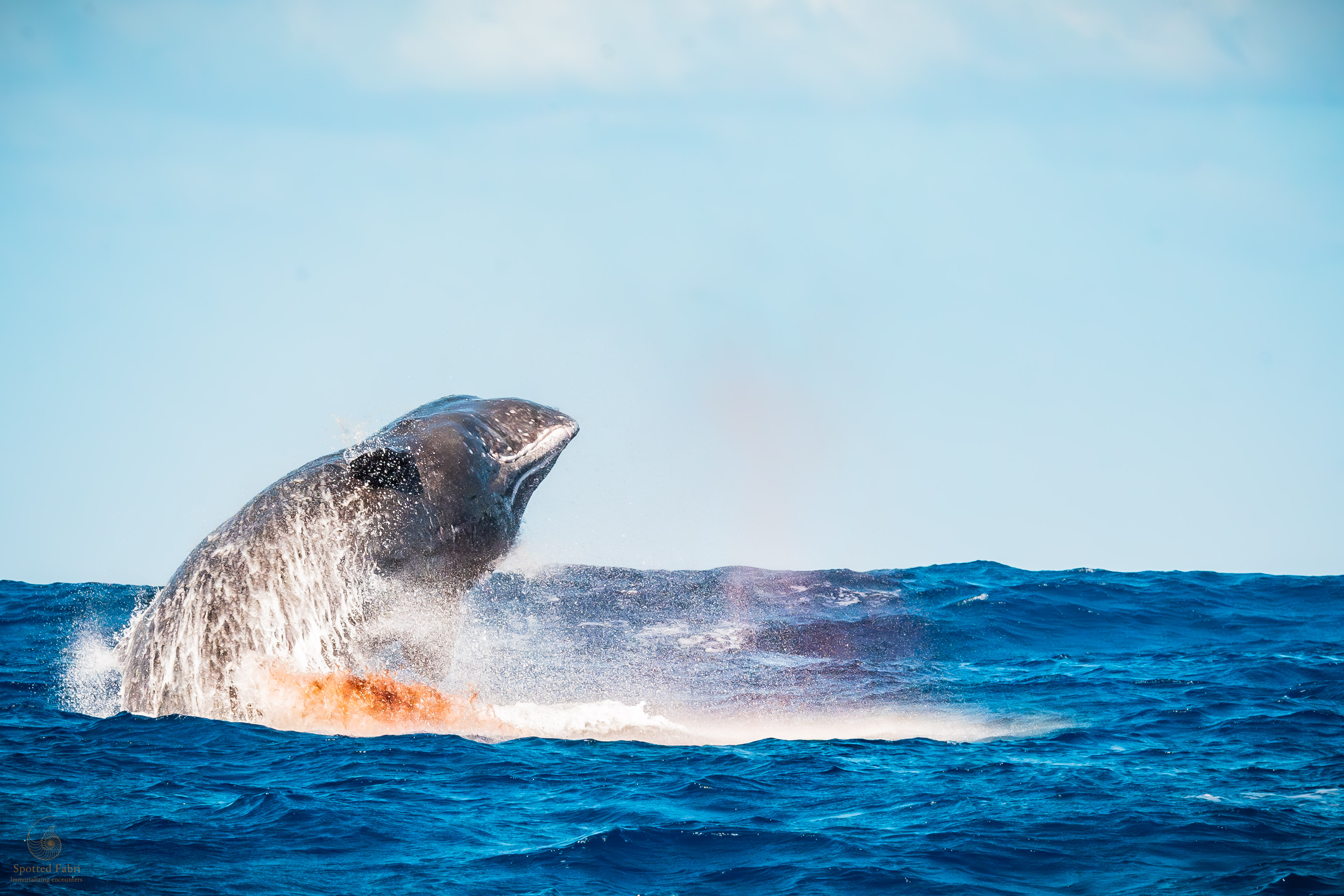
When the Ocean Roared Back: A Turning Point for Sperm Whales in Mauritius
Part 2 of the Wildest of them all
By Spotted Fabri | June 2025 | Mauritius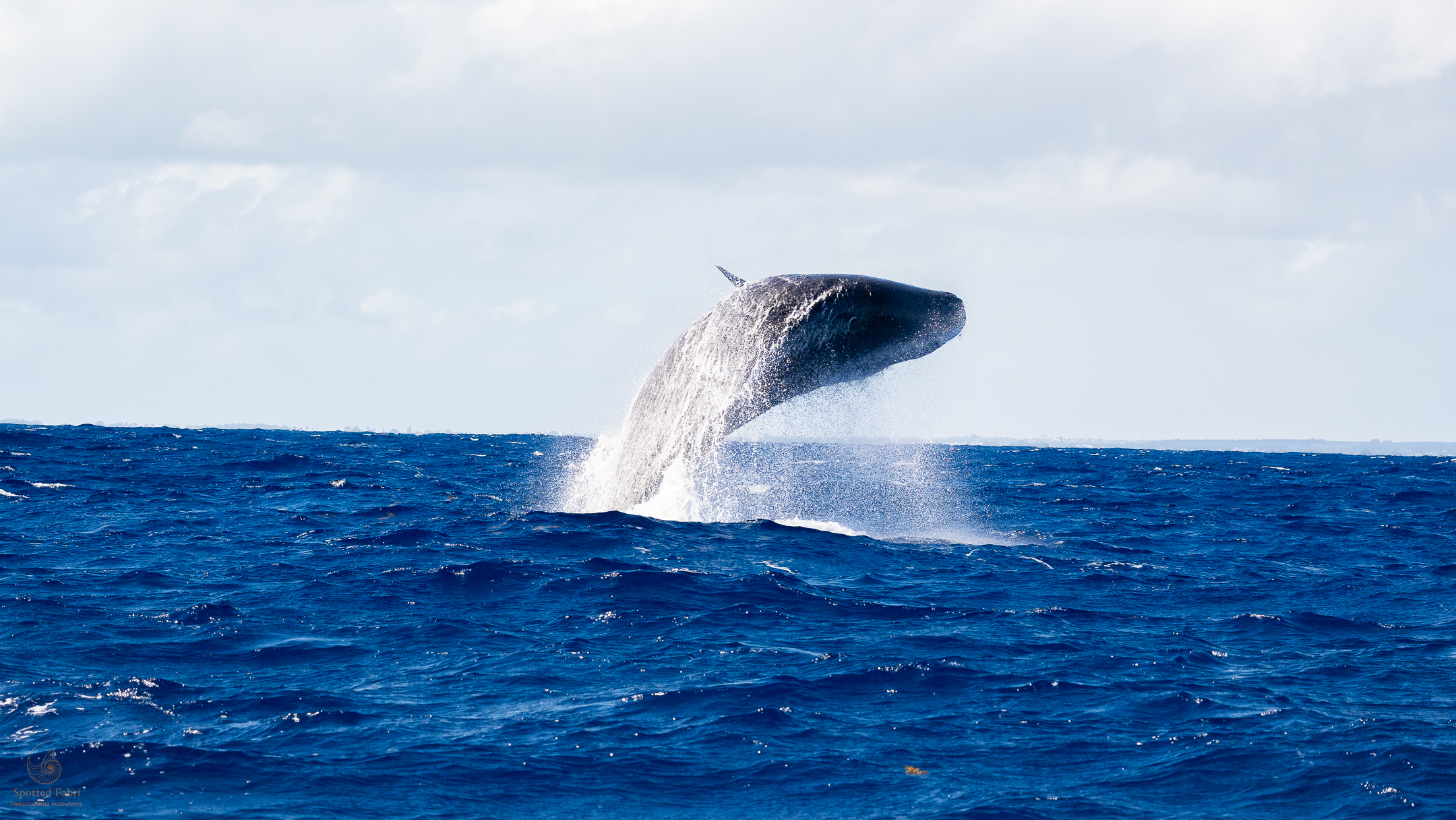
There was something electric in the air. Boats surrounded the spot—five nautical miles offshore, 2,000 meters deep. Helicopters hovered. Coast guard vessels surged in.
It felt less like whale watching, and more like a covert operation happening at sea.
And I was right there, watching history unfold.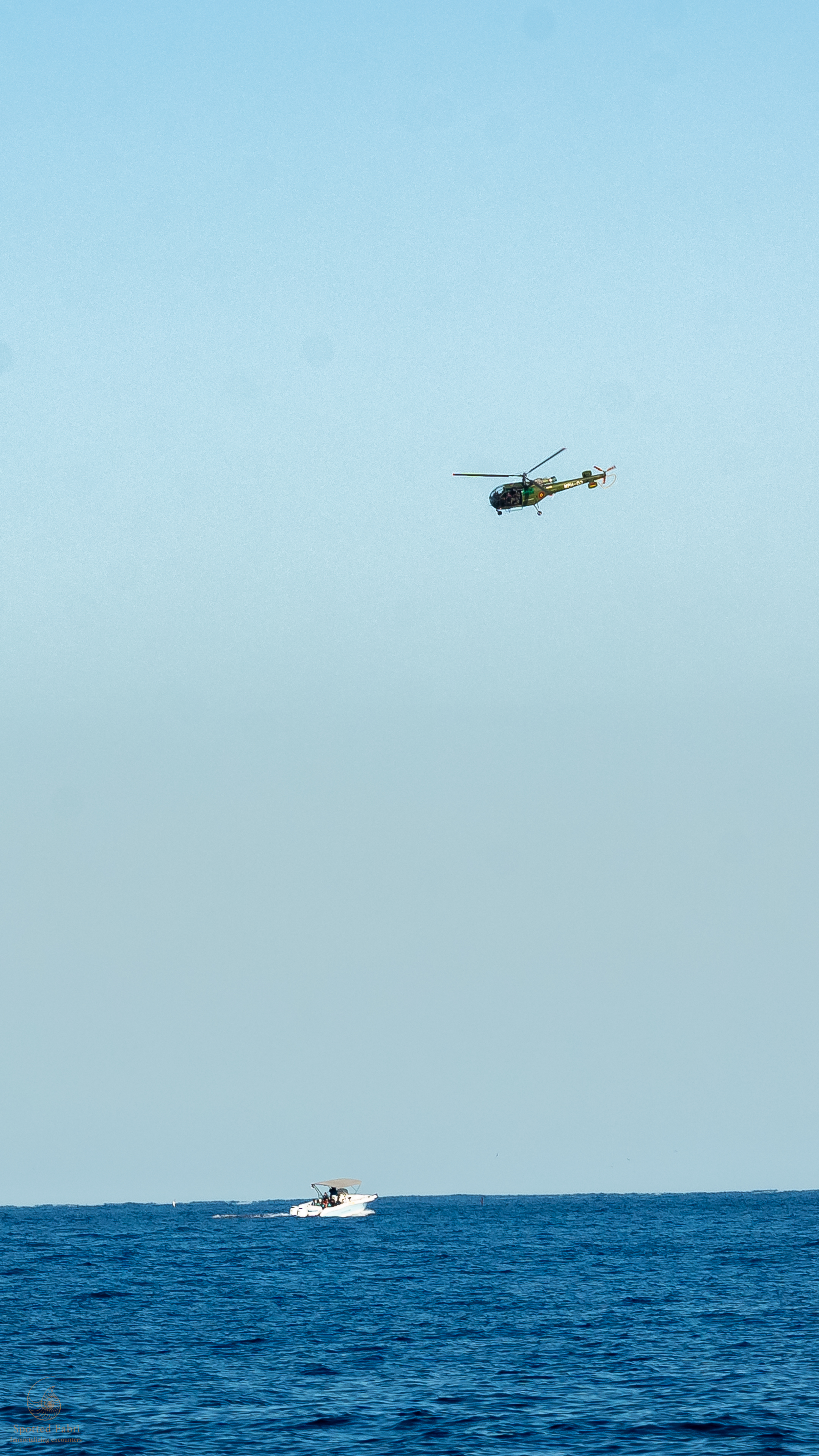
Whales with Names, Not Hashtags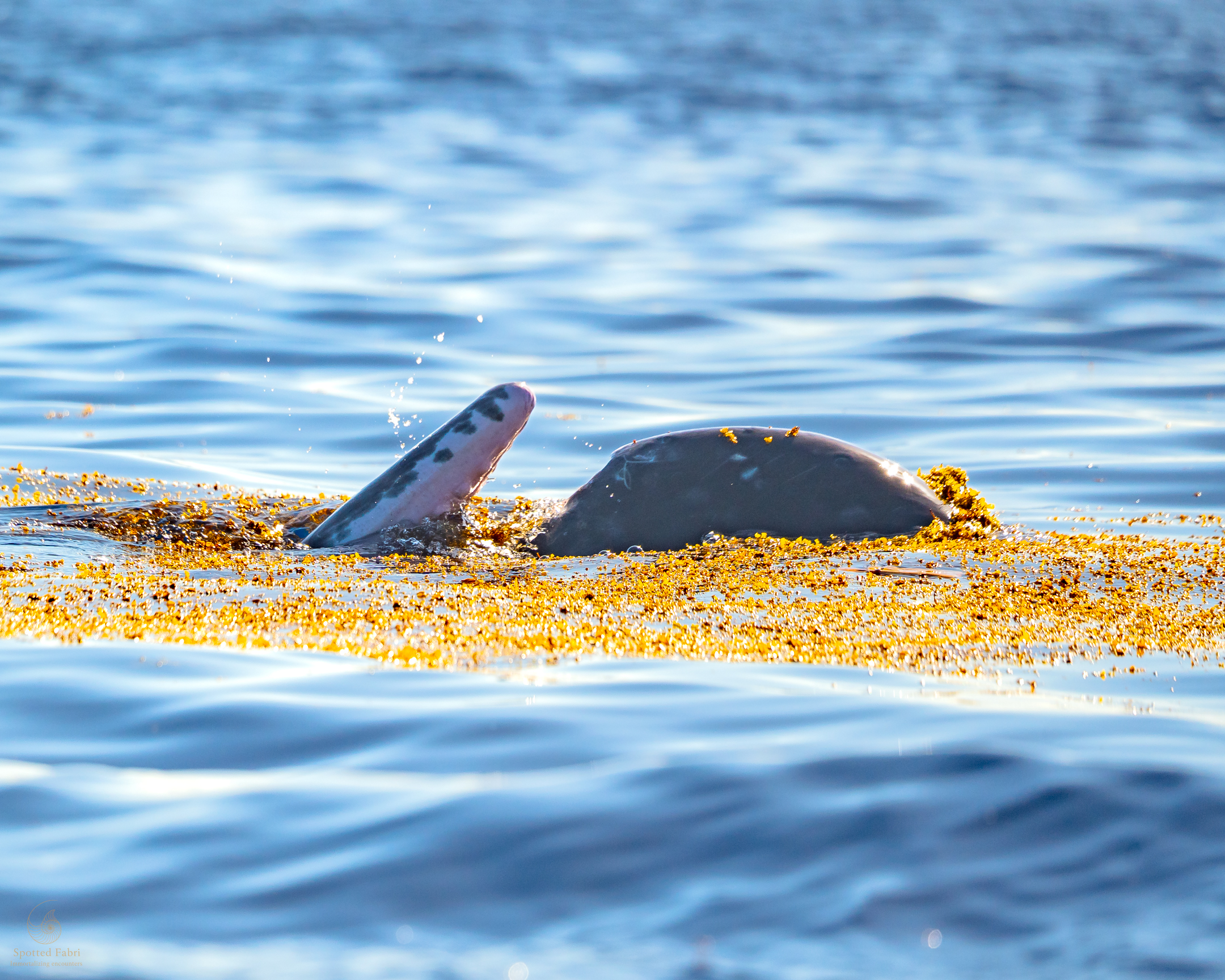
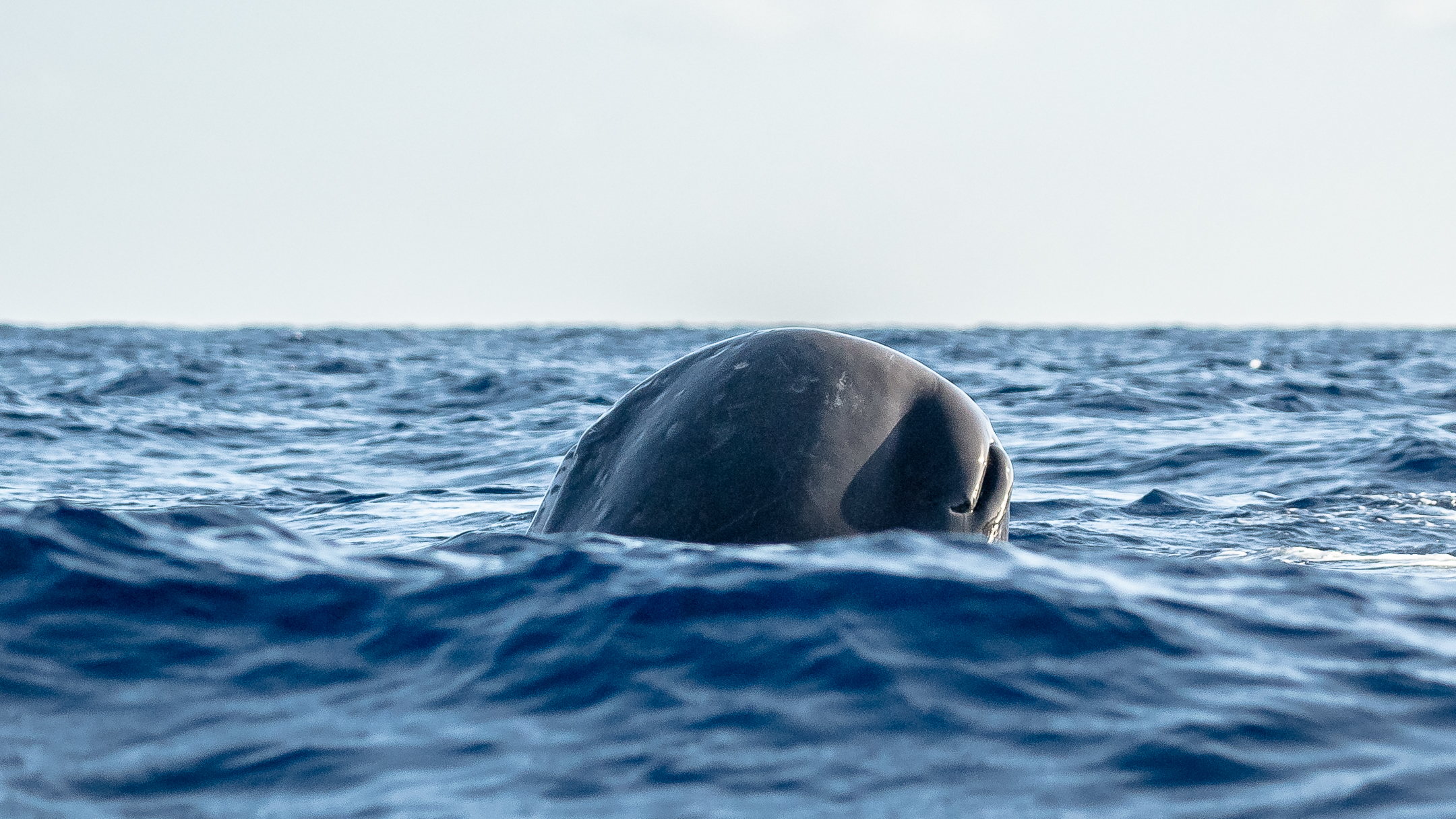
We were guiding a group on a whale safari when it happened. On board with me was my captain, a local man who once fished these waters and now protects them. With us were people who came to Mauritius seeking magic—the chance to glimpse Irene, Vanessa, Vaco, Lana, Chico, Pretty, Elliot.
These are not anonymous whales. They are individuals. They know these waters. They socialize. They love. They rest. They mate. They breathe deeply in their home.
And their home was being suffocated.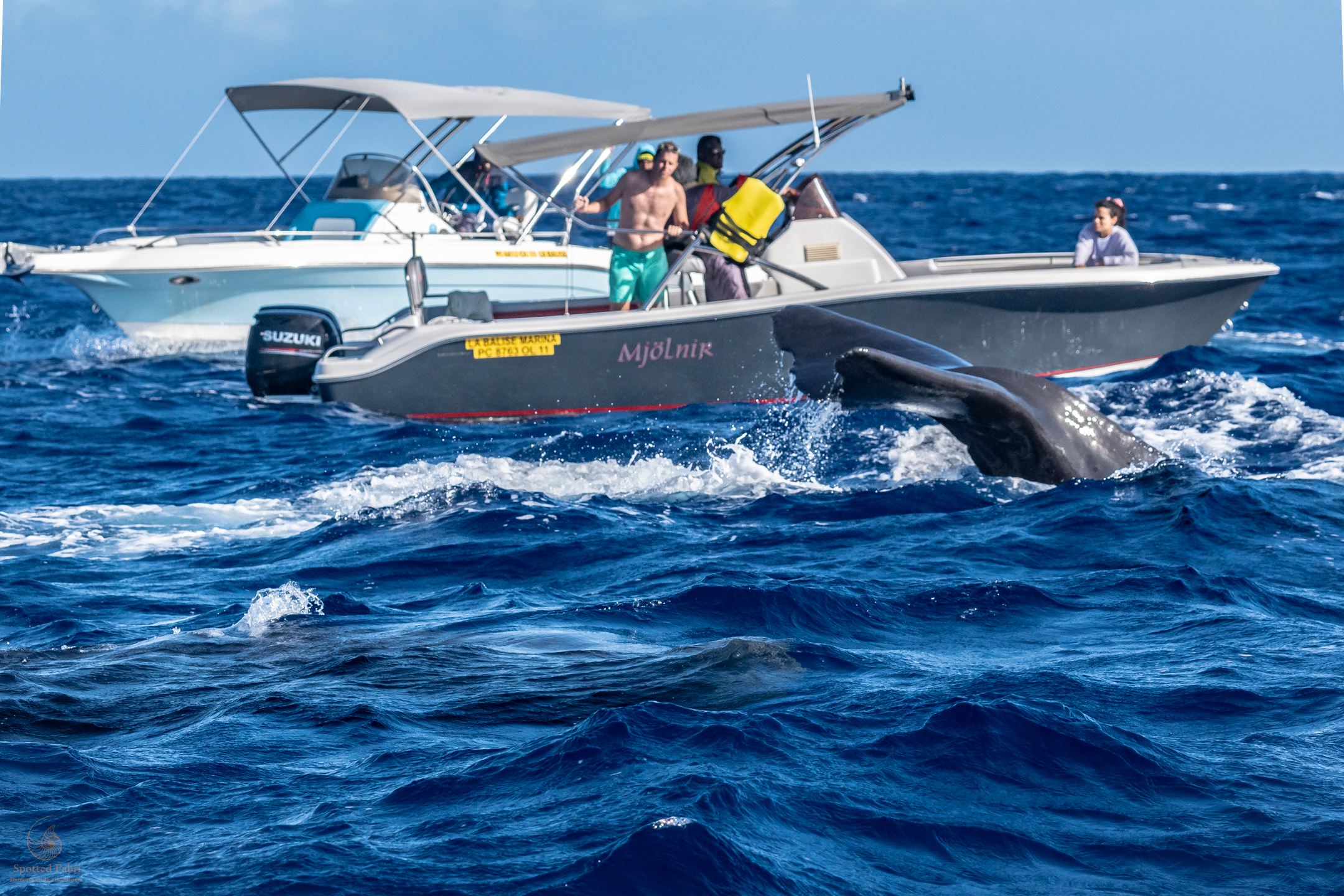
For too long, bad tourism practices harassed them daily. Tourists jumping on them. Boats driving fast across their paths. People blocking their breathing spaces. Each act seemed small. Together, it was deadly. Not by harpoon, but by stress.
This is how you kill a species slowly.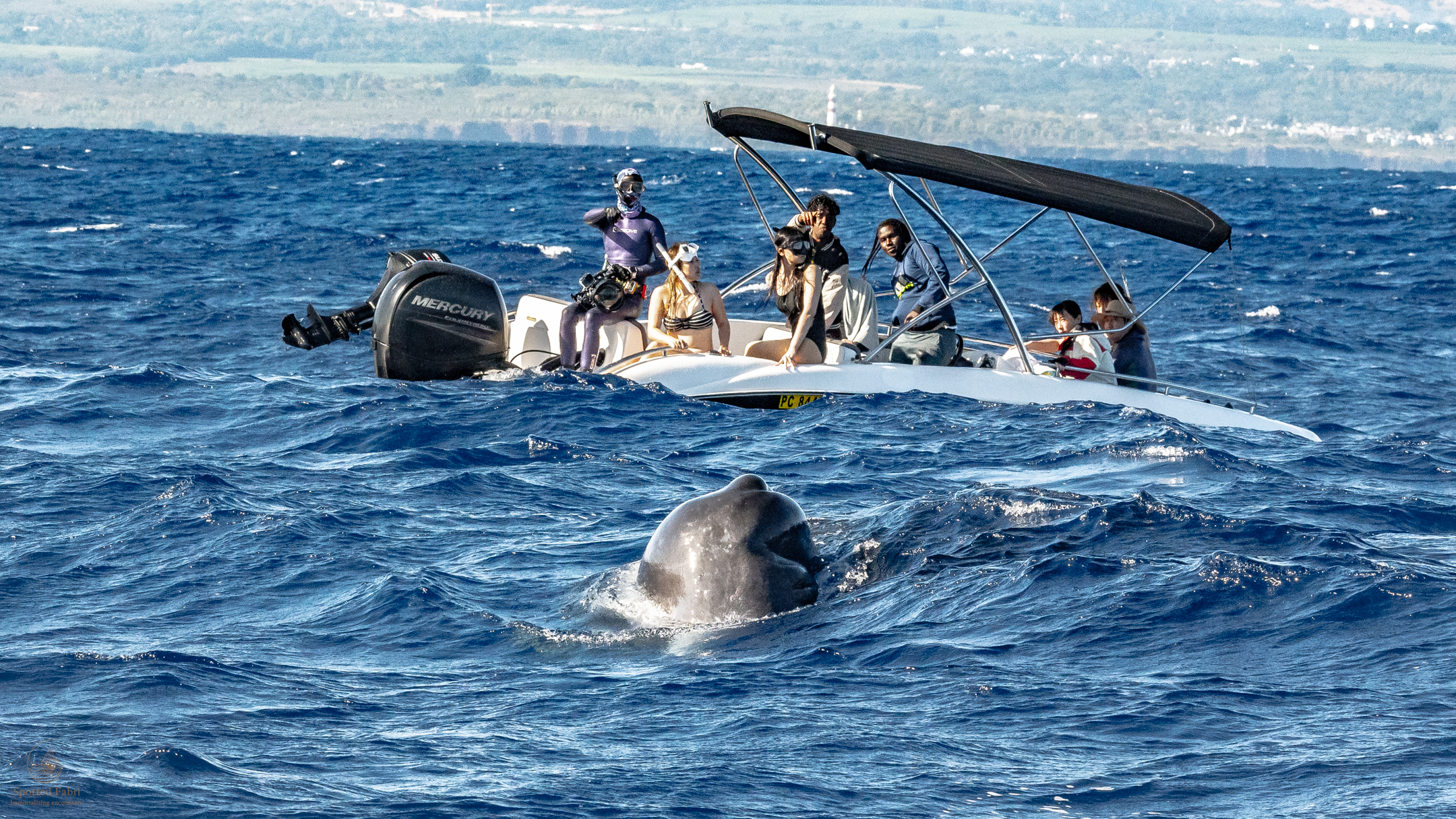
The law tries to talk
What the Law Says: Swimming with Whales is Illegal
Mauritius has had regulations in place since 2012 under the Tourism Authority (Dolphin and Whale Watching) Regulations. These are not suggestions. They are law:
Swimming with whales is strictly prohibited
Whale watching requires a licensed operator
Boats must remain 100–200 meters away from whales
Permits for close encounters are granted only for scientific or documentary purposes
As of late 2023, the government began active enforcement with fines, license removals, and nationwide awareness campaigns
Despite the rules, the practice continued for years. Too many turned a blind eye. Until that day.
A Coast Guard Operation Like No Other
On that morning, the ocean was buzzing. Helicopters hovered. Big boats sped toward us. The authorities were taking over. The law had arrived—visibly, audibly, and seriously.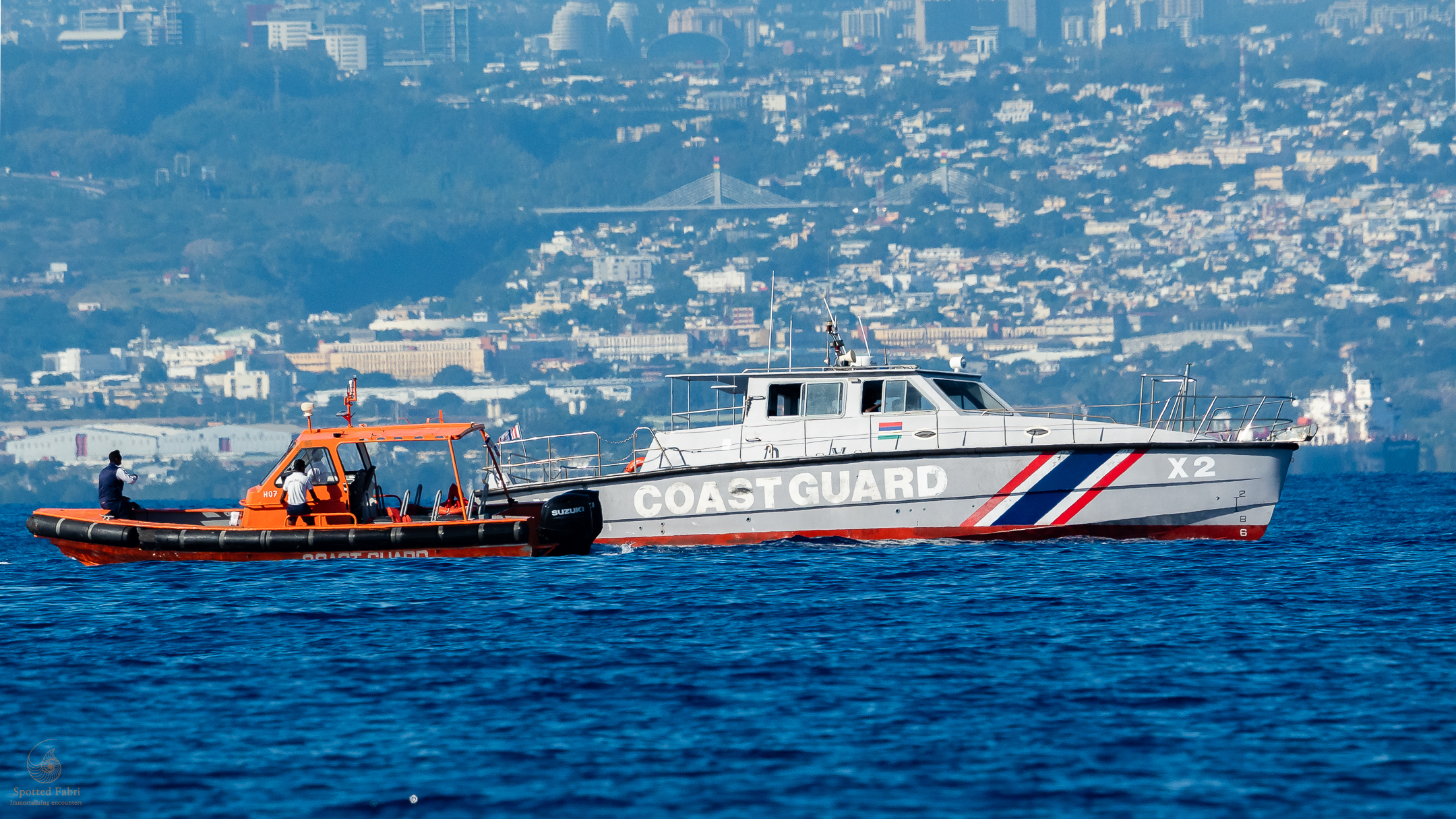
At first, I was speechless. I watched from our boat, unsure how to explain what was happening to our guests. My camera shook slightly in my hands.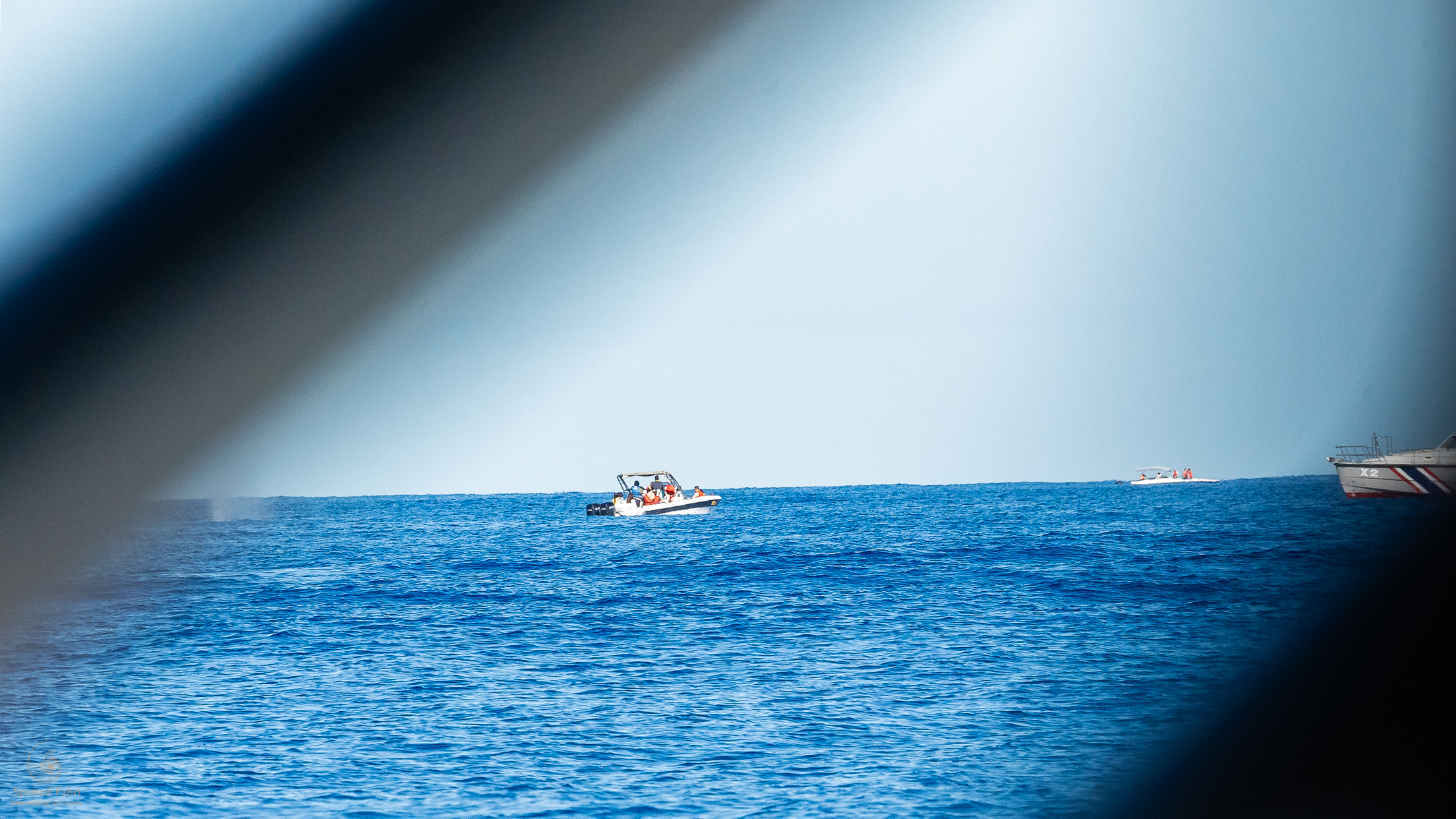
And then, the captain—who had once relied on the ocean for survival, who had chosen to leave whale swimming behind—spoke:
“This is good. This is very good.”
His words grounded me. I looked into his face and saw it—pride. Relief. Hope.
Hope that this would mark the beginning of something better. For the whales.
For the people. For the island.
This Isn’t About Closing Doors—It’s About Opening Better Ones
I’m not calling for the end of tourism. We are calling for respect.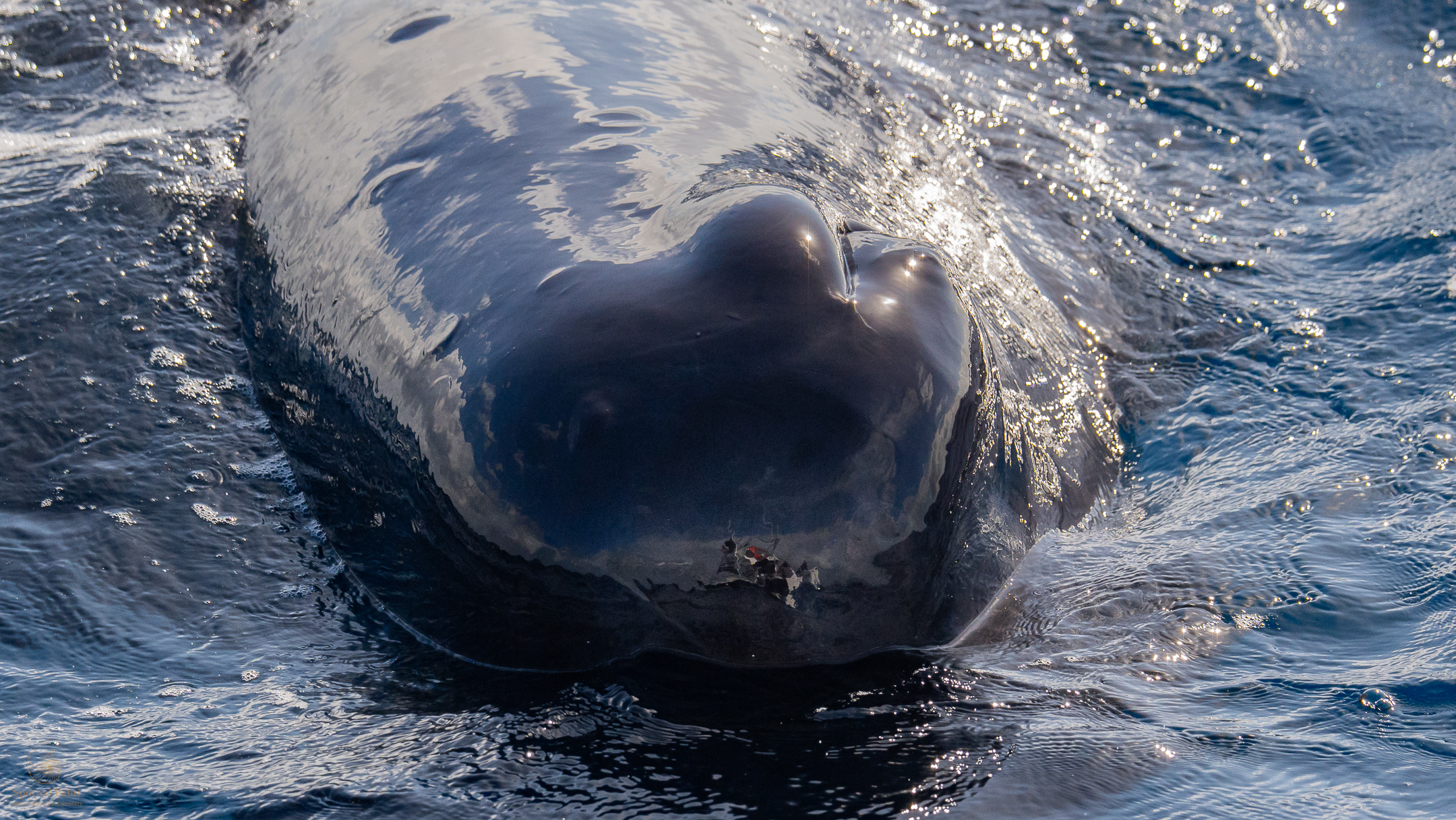
We can still run tours. We can still tell stories. We can still inspire people. But we must do it with the whales, not at their expense.
This is not about shutting down the industry—it’s about giving it a future. A future built on conservation, storytelling, and connection. Not exploitation.
Let’s not wait until the whales are gone to understand their value.
A New Chapter for Mauritius and Its Whales
Following the situation up close, now the so called City is a town. Now, we see a lot of boats doing whale watching. A lot of boats that can still live of the whales but with respect. Now we can see a big difference, the whales are much more relaxed. They can have some time to breath and the people can enjoy the presence of this ancient and mystical creatures..jpg)
I don’t know what will happen next. Will every operator follow the rules? Will the coast guard keep showing up? Time will tell. But something shifted that day. The ocean roared back—and this time, we listened.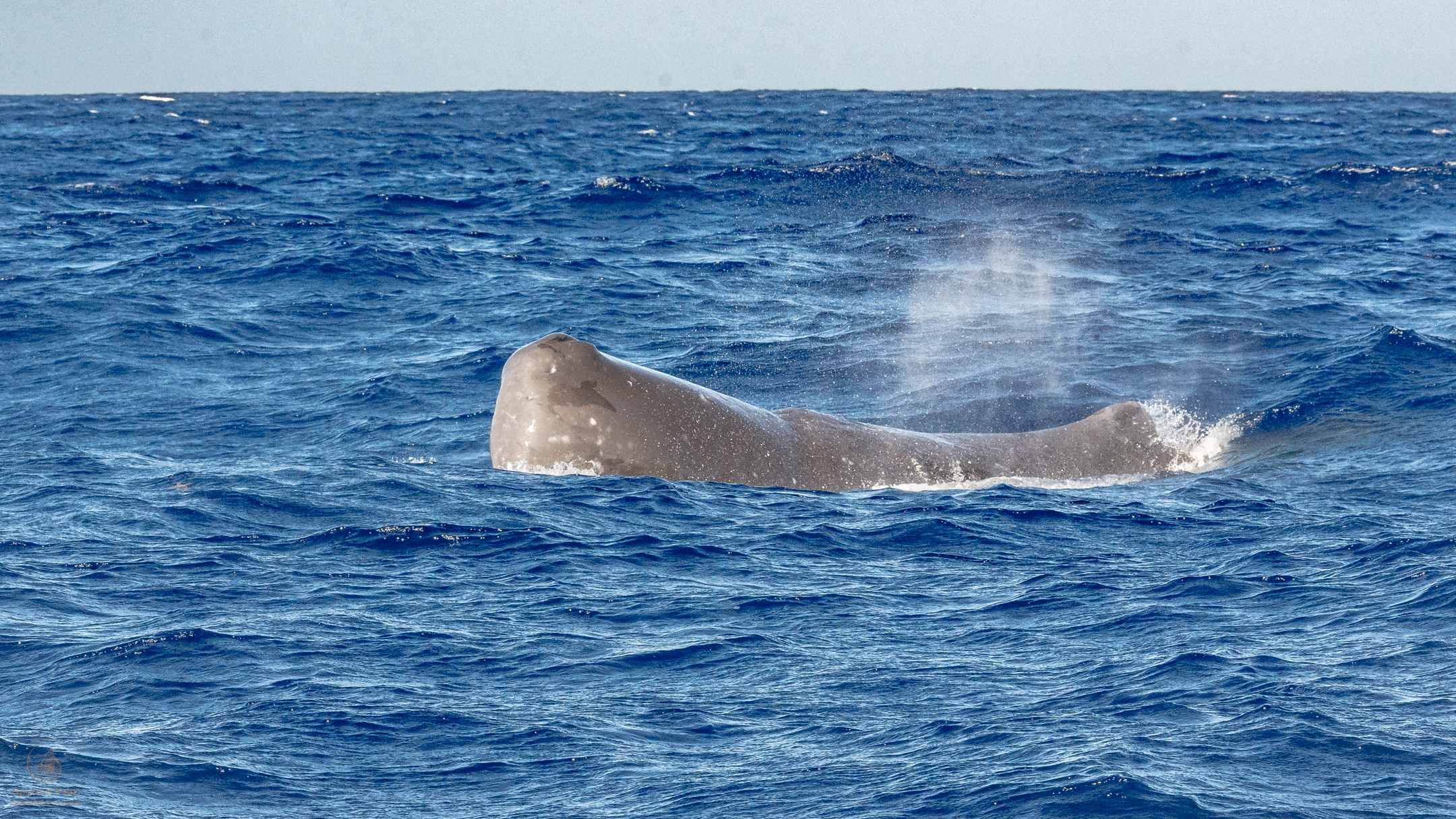
These whales aren’t here for our entertainment.
They’re not statues to tag on Instagram.
They’re not products.
They are living, breathing, sentient beings.
They deserve peace.
And now, finally, they’re starting to get it.
📣 What You Can Do as a Visitor in Mauritius
Choose licensed operators who follow distance rules
Refuse to swim with whales, even if offered.
Educate others: share this story, share the law
Support tours that protect, not, exploit.
Speak up when something feels wrong
Ask questions to local organizations that fight for the well being of the animals.
Let’s make this moment more than a spectacle. Let it be a shift in consciousness. A call to protect what we love—before it’s too late.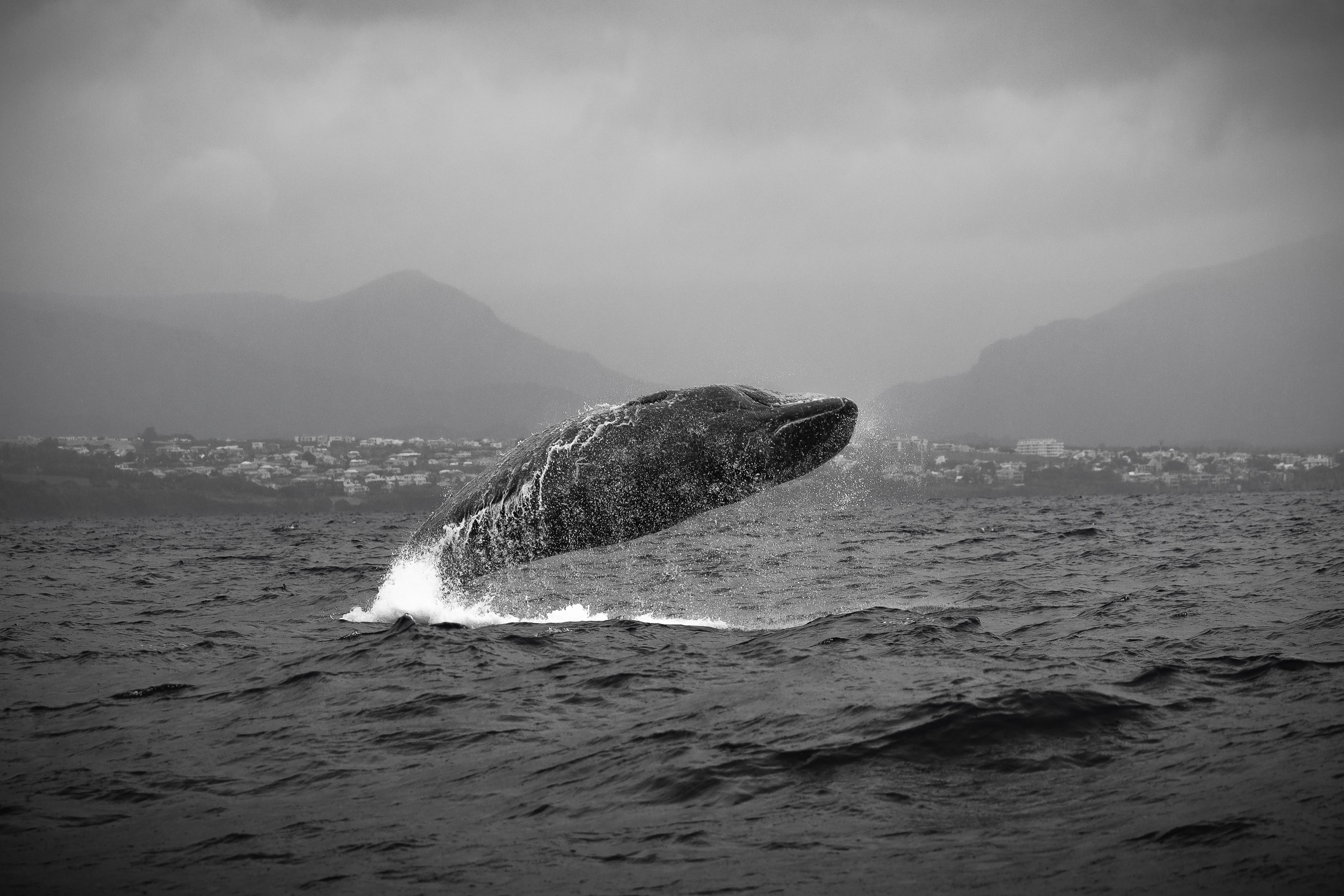
Sincerely
Spotted
🖼️ Read more stories from the ocean on our blog: Encounters



